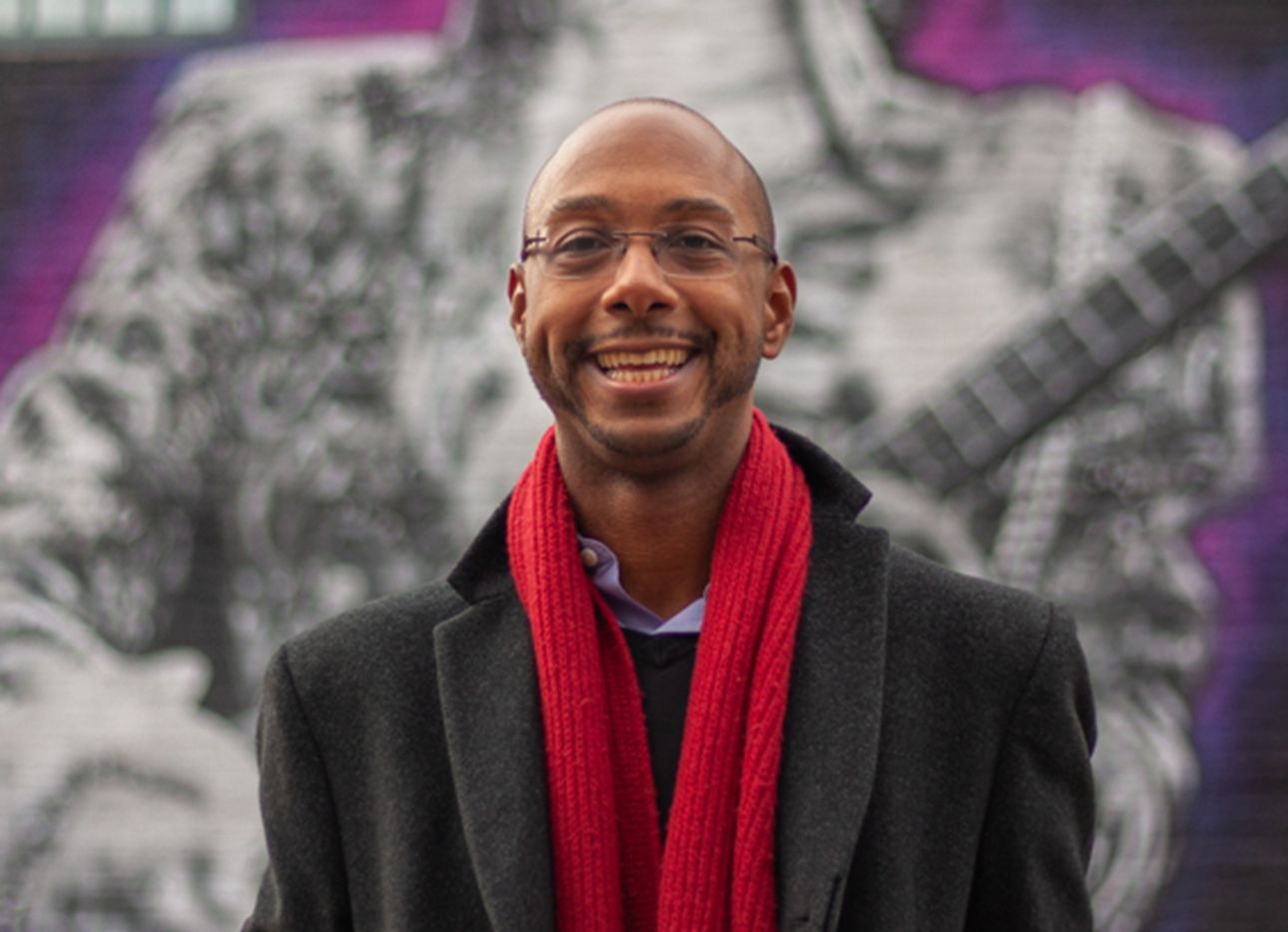
Elliott H. Powell Traces the History of Black Musicians Engaging with South Asian Culture and Sounds
By analyzing examples from the 1960s to today, Elliott H. Powell, a scholar of race, sexuality, and pop music, traces the history of African-American musical engagements with South Asian culture and sounds in his new book, Sounds from the Other Side: Afro-South Asian Collaborations in Black Popular Music (University of Minnesota Press). “In the end,” Powell says, “the book is about illustrating what the political stakes are in Black popular music when creating music between and across marginalized communities.”
To demonstrate the wide range of these sonic crossings, which span jazz, funk, hip-hop, and R&B, Powell created a playlist for us. “The playlist also illustrates how these endeavors took on different forms,” he says. “Some artists, like Missy Elliott, sampled South Asian music. Others, like Miles Davis and Timbaland, collaborated with South Asian musicians. Rick James played his own South Asian instruments. And John Coltrane simply incorporated South Asian song structures and musical traditions into his work.” Coincidentally, Powell continues, the line-up’s arc makes for an ideal work-day soundtrack. “The opening gets you settled in,” he says. “By the time you’re ready for work to be over, there’s something high-energy and dance-centered to provide a much-needed boost. The end of the playlist, which is more rap-oriented, hits that mood.”
“My Favorite Things,” John Coltrane
“A Love Supreme, Pt. IV: Psalm,” John Coltrane
“Black Satin,” Miles Davis
“Billy Preston,” Miles Davis
“Rick’s Raga,” Rick James
“Painted Pictures,” Rick James
“You Are My Heaven,” Mary Jane Girls
“Get Ur Freak On,” Missy Elliott
“Addictive,” Truth Hurts and Rakim
“The Bounce,” Jay-Z and Kanye West
“Indian Flute,” Timbaland and Magoo
“Baby Boy,” Beyoncé featuring Sean Paul
“Oops (Oh My),” Tweet featuring Missy Elliott
“Call Me,” Tweet
“Ugly,” Bubba Sparxxx